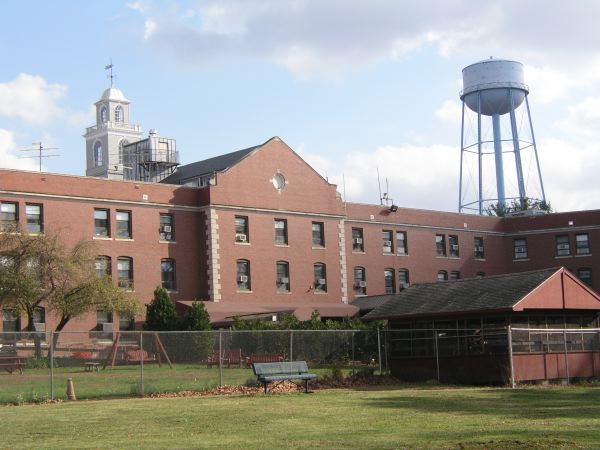BURRILLVILLE – Stating that those tasked with reviewing operations at Eleanor Slater Hospital may have been bias, the former chief medical officer of the facilities defended his work this week in a 16-page letter to state healthcare officials.
Dr. Brian Daly, who announced he would resign from his role leading the hospital system in June, took issues with a review last month by Care New England and the Hospital Association of Rhode Island, which stated that care at the Zambarano unit in Burrillville was good, but leadership was lacking.
The hospital, which provides long-term care for some of the state’s most vulnerable patients, has been under scrutiny for the past year, following calls from local officials for transparency regarding its future.
Zambarano, known as the hospital of last resort for patients with complex medical issues, had stopped accepting new patients last year, and former doctors said they were pressured to discharge some who had lived there for decades, despite not having a suitable alternative placement, in what local legislators dubbed a, “shadow closure,” of the campus. Over the months that followed, the hospital has been subject of numerous legislative hearings and assessments finding issues with billing practices, neglected facilities and more.
Gov. Dan McKee has since said he will revisit a strategy left behind by his predecessor, Gov. Gina Raimondo, to restructure Eleanor Slater by closing Zambarano and building a new hospital on the Burrillville campus. McKee ordered the review released last month, which found high-quality patient care, but stated leadership was lacking at Zambarano, pointing to the work of Daly and Medical Chief Dr. Andrew Stone.
“While they each seemed to have clinical strengths, the themes throughout the conversations were a lack of trust, poor communications, and frustrated attempts to bring change,” stated the 11-page assessment of the facilities. “It is also important to point out that the two physician leaders do not actively and routinely care for patients at the hospital.”
The review also echoed concerns of health care advocates who have questioned plans to discharge patients who have few, if any, alternatives for care.
“Many of the patients are deemed to be ‘medically stable and ready for discharge,'” the review noted. “Where, technically, this may be accurate, our observations raised many potential disposition concerns that make it almost
impossible to transfer any of these patients to a different facility.”
“We would be quite concerned with a wholesale transferring of most of these long term patients given
the substantial complex, specialty type of care they require,” it stated.
But in a letter rebutting the review dated July 30, Daly states it was, “riddled with overt falsehoods,” and, “failed to produce an accurate assessment of the hospital and its leadership.”
“At best that failure was due to gross error, incompetent research and failure to properly investigate (rising to the level of irresponsibility and incompetence) on the part of CNE investigators,” Daly wrote.
“Even in complimenting the work of those whom we supervise and manage, they saw no (or at least documented no) correlation between our leadership and the care provided,” Daly states in part.
The former chief medical officer notes that the Benton facility, a Cranston-based unit that houses forensic patients who have been charged with misdemeanor crimes, was not included in the evaluation.
“The only imaginable explanation is that it would be a site that would not support the opinions that the group wanted to make,” Daly wrote. “The overwhelming focus on the Zambarano facility in several parts of the report, especially those that covey erroneous information that Dr. Stone and I perform no clinical work, supports this.”
The complete 16-page letter, published by WPRI, can be found here.








